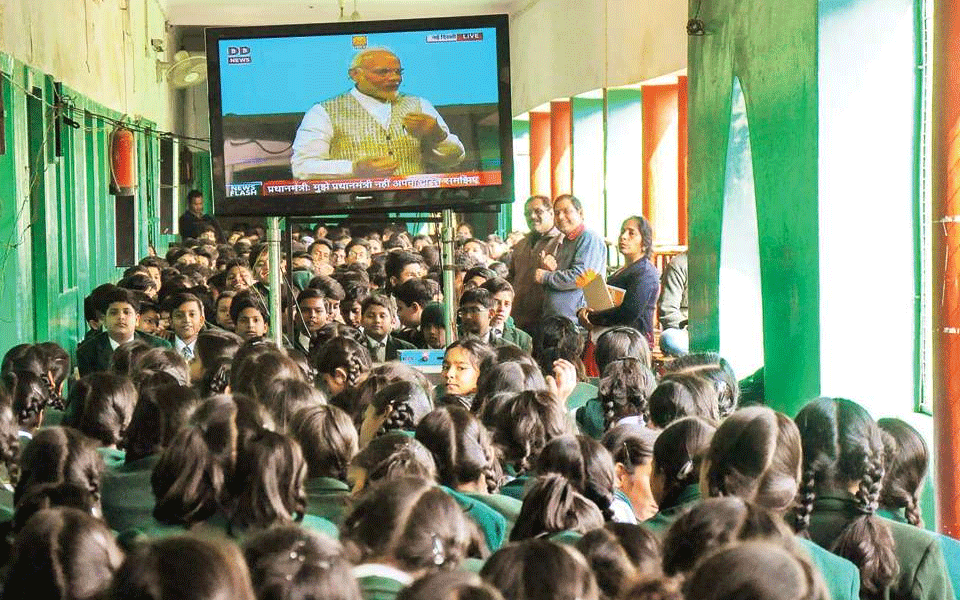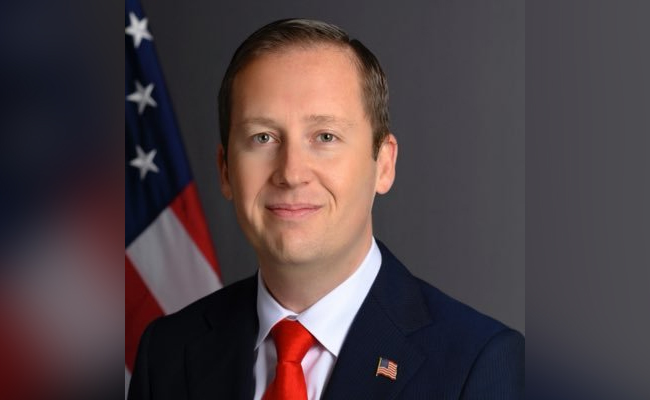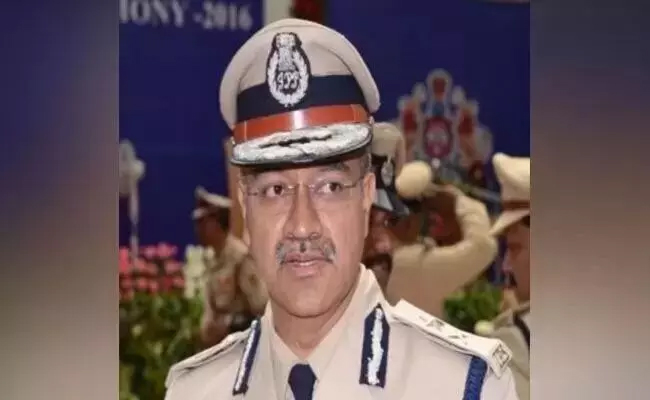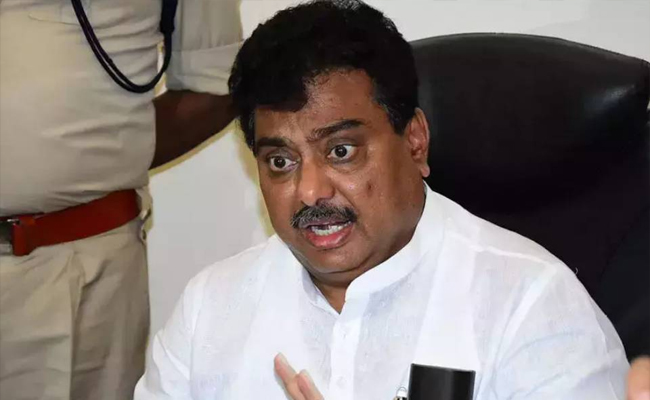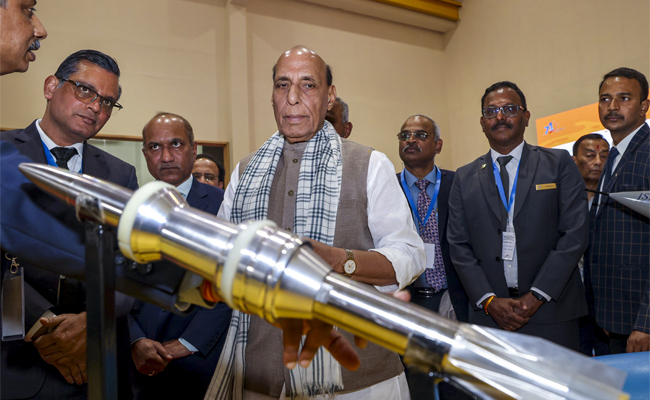Dehradhun: Dalit students of a government high school in Kullu were reportedly made to sit separately outside, in a “place used for horses”, during the telecast of Prime Minister Narendra Modi’s ‘Pariksha Par Charcha’ on Friday.
According to reports, the school in Kullu’s Chestha gram panchayat had made arrangements for students to watch Modi’s televised programme at the residence of the head of the school management committee.
In a complaint to Kullu Deputy Commissioner Yunus on Friday evening, some of the students alleged that a teacher, Mehar Chand, told them to sit outside the room where the television had been set up. “Dalit students were made to sit in a place used for keeping horses,” they said, adding that they were warned not to leave midway through the programme.
In their complaint, written in Hindi on a school notebook, the students alleged that they are also subjected to “caste discrimination during midday meals”. “Students belonging to Scheduled Caste category are made to sit separately. Even the headmaster does nothing… he also practices untouchability,” they said.
Following a purported video clip of the incident, a local organisation, Anusuchit Jati Kalyan Sangh, lodged a protest with the school headmaster, Rajan Bhardwaj, and deputy director, education, Kullu, Jagdish Pathania, on Saturday.
“The headmaster, Rajan Bhardwaj, has confirmed the incident and tendered an apology, assuring that this will not be allowed to happen again. But that’s not enough,” said a member of the organisation.
“This matter has come to my notice today. I have asked Secretary, Education to get a report and take stern action,” said State Education Minister Suresh Bhardwaj. “I have also been told that Dalit students faced discrimination in the school earlier too, during midday meals. If these reports are true, we will not spare the guilty,” he said.
“The government will seek a report from the local administration and recommend suitable action,” said Secretary (Education) Arun Sharma.
Terming it as a “serious matter”, Deputy Commissioner Yunus said a magisterial probe has been ordered into the incident. “SDM Kullu, Sunny Sharma, will hold the magisterial inquiry. The report has been sought in the next two days,” he said. “Disciplinary action has already been initiated against the headmaster. If the incident is confirmed, criminal liability will be fixed,” he said.
An inquiry committee comprising deputy director (higher education), deputy director (elementary education), district project officer, ICDS, and the local SHO is scheduled to visit the school on Monday.
Let the Truth be known. If you read VB and like VB, please be a VB Supporter and Help us deliver the Truth to one and all.
New Delhi: A visit by the US Ambassador to India, Sergio Gor, to Chandigarh on Monday has triggered sharp criticism from opposition leaders and social media users, raising questions about national security and foreign policy.
On X, Ambassador Gor announced his visit, writing, “Just landed in Chandigarh. Looking forward to visiting the Western Command of the Indian Army.”
Just landed in Chandigarh. Looking forward to visiting the Western Command of the Indian Army
— Ambassador Sergio Gor (@USAmbIndia) February 16, 2026
Soon after, opposition voices questioned the broader implications of the visit. Congress Kerala, in a post, commented, “Why so much panic? We’ve already seen Pakistan's ISI getting access to Pathankot Airbase with this government's blessings. Didn't they say then ‘Modi ne kiya ho to kuch soch samajh kar kiya hoga?’ Compared to that, this is very small.”
Why so much panic? We’ve already seen Pakistan's ISI getting access to Pathankot Airbase with this government's blessings.
— Congress Kerala (@INCKerala) February 16, 2026
Didn't they say then "Modi ne kiya ho to kuch soch samajh kar kiya hoga?"
Compared to that, this is very small. pic.twitter.com/gNNuAGQBPC
Shiv Sena (UBT) leader Priyanka Chaturvedi also weighed in, writing, “Since India’s national strategic interests are now tied to what US wants India to do, this visit seems to sync with that.”
She further added, “India’s history will remember the de-escalation announcement between India and Pak was announced on social media by the US President before Indians got to know from their own government. US Ambassador is doing the job for his nation, who is doing for us? The answer is blowing in the wind.”
Since India’s national strategic interests are now tied to what US wants India to do, this visit seems to sync with that. India’s history will remember the de-escalation announcement between India and Pak was announced on social media by the US President before Indians got to… pic.twitter.com/rYMq5NhJHA
— Priyanka Chaturvedi🇮🇳 (@priyankac19) February 16, 2026
The visit comes against the backdrop of the growing US-India defence partnership.
Writer and political analyst @rajuparulekar commented on ‘X’, “East India Company is back!”
“Is it allowed for an ambassador to visit any army unit in india?” asked another user.
Several X users expressed concerns over the appropriateness of the visit.
One asked, “Is it allowed for an ambassador to visit any army unit in India?” Another wrote, “Why an ambassador visiting our army places? To talk to Chandigarh lobby for F-35?”
Why an ambassador visiting our army places ? To talk to chandigarh lobby for f-35 ??
— Rohan Sagar (@RohanSagar03) February 16, 2026
“We have completely sold Indian sovereignty. Rothschild the evil Bankers will now control NSE. Modi sold Bharat Mata to Trump . And now American imperialist is visiting our army command . Scary,” wrote another user.
“The Indian Army isn’t part of geopolitics, so why is he interested in visiting there?,” opined another.
The Indian Army isn’t part of geopolitics, so why is he interested in visiting there?
— Aditya Pratap Singh (@Adi_IIMCIAN) February 16, 2026
On Sunday, Gor welcomed Admiral Samuel Paparo, Commander of the United States Indo-Pacific Command (INDOPACOM), highlighting efforts to expand the growing US-India defence partnership.
In a post on X, Gor wrote, “Delighted to have @INDOPACOM Commander Admiral Samuel Paparo in India to expand the U.S.-India defense partnership. Now is the time to strengthen vital cooperation between our two nations.”
On Monday, Admiral Samuel J. Paparo Jr visited the headquarters of India’s Western Army Command along with the American envoy Sergio Gor. The delegation was briefed on the formation’s capabilities, its past operations, and future plans.
The American delegation also visited Bengaluru, where they met three start-ups, two in the space sector and one in defence, and participated in an Indo-US conference.

